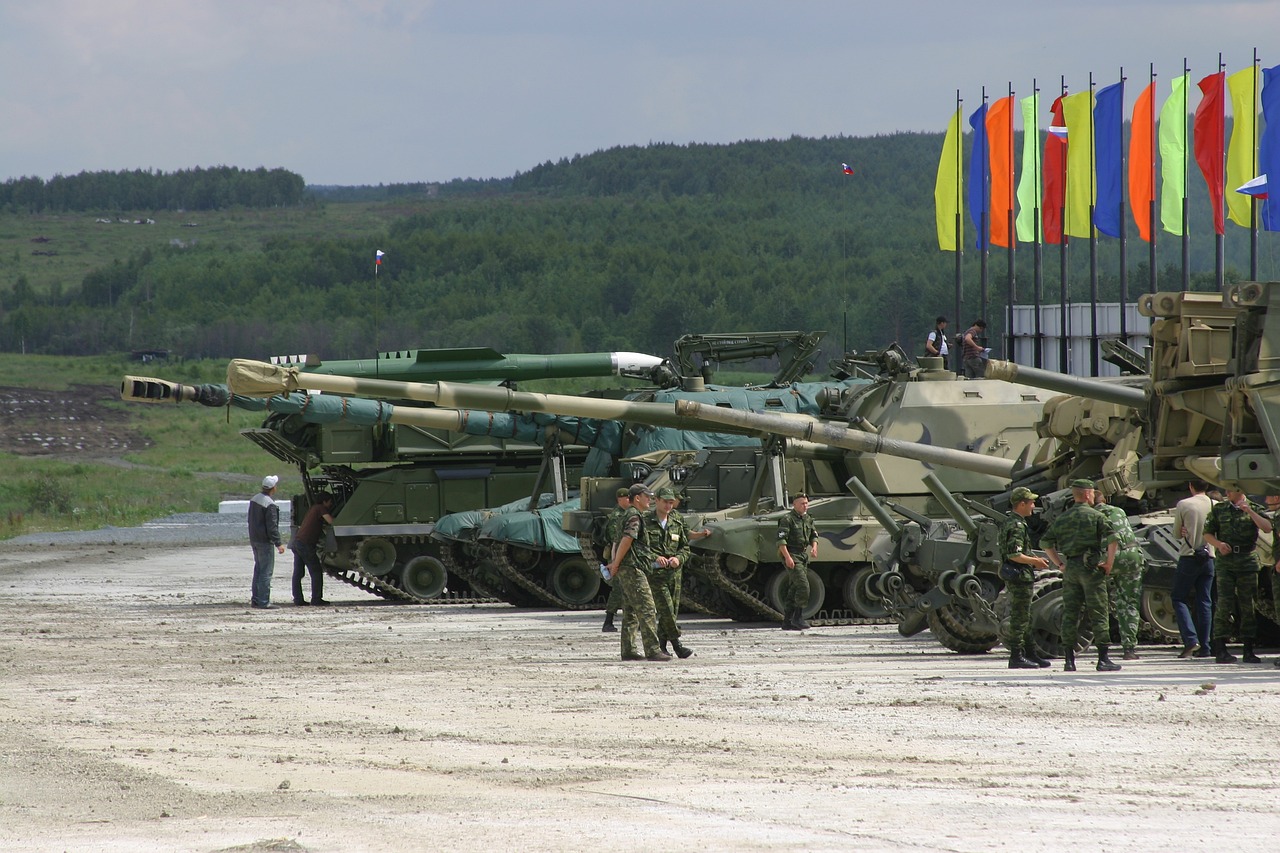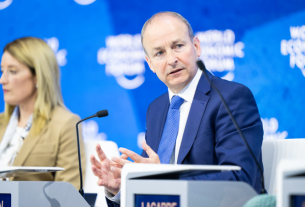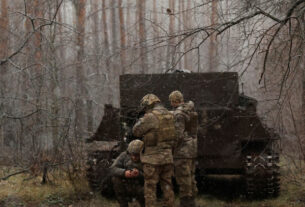Date: November 11, 2024
A massive new counteroffensive involving up to 50,000 Russian and North Korean troops is reportedly underway in Russia’s western Kursk region, according to multiple Ukrainian military sources. This operation, which aims to dislodge Ukrainian forces from their positions along the Russian-Ukrainian border, signals an intensification of the ongoing conflict between Russia and Ukraine, now entering its second year since Russia’s full-scale invasion of Ukraine in February 2022.
Scope and Strategic Importance of the Offensive
The Kursk region, located in western Russia near the Ukrainian border, has seen intense military activity since the early days of the war. The region’s strategic significance lies in its proximity to key Ukrainian cities such as Kharkiv and Sumy, which have been repeatedly targeted by Russian forces. The Ukrainian military has maintained defensive positions in this area to block any further Russian advances into the northeastern part of Ukraine.
According to Ukrainian military intelligence, the offensive will involve a combined force of Russian regular army units and North Korean soldiers, marking the first known deployment of North Korean forces in the ongoing war. The presence of North Korean troops is seen as an alarming development, as it underscores the increasingly tight military alliance between Russia and North Korea in their efforts to counter Ukraine and its Western allies.
Composition of the Counteroffensive
The forces involved in the counteroffensive are said to number up to 50,000 soldiers, with approximately 40,000 Russian troops and 10,000 North Korean soldiers. These troops are reported to be stationed near the Kursk and Belgorod regions in southwestern Russia, just a few dozen kilometers from the Ukrainian border.
North Korea’s involvement comes after months of military cooperation between Moscow and Pyongyang, with Russia seeking additional artillery, rocket launchers, and ammunition to bolster its supply lines, which have been strained by Western sanctions and arms deliveries to Ukraine. North Korea has reportedly provided significant military support to Russia, including weapons and artillery shells, while Russia has reciprocated by providing advanced military technology and energy supplies to Pyongyang.
Ukrainian Military Response
Ukrainian sources suggest that Ukrainian forces along the Kursk border are on high alert, preparing for the likely offensive. The Ukrainian Armed Forces have made significant progress in the region, but intelligence reports indicate that the latest offensive could be more aggressive, with Russian and North Korean troops expected to use heavy artillery and airstrikes to break Ukrainian defenses.
While the Ukrainian military has expressed confidence in holding its positions, experts warn that the introduction of North Korean forces could bring additional combat experience and resources to the Russian side, potentially complicating Ukrainian efforts to maintain control over the region.
The Ukrainian General Staff is reportedly mobilizing additional reserves and has intensified efforts to fortify defensive positions in anticipation of the attack. Ukrainian sources indicate that Kyiv is also expecting possible Russian offensives in other parts of the country, including the Donbas and Zaporizhzhia regions, as Russian forces attempt to regain momentum before winter sets in.
Geopolitical Implications
The involvement of North Korea in the conflict has serious geopolitical implications. The UN Security Council has already expressed concern about the increased militarization of the conflict, especially in light of the UN’s ongoing sanctions against North Korea, which have sought to curb the country’s military activities. The deployment of North Korean troops is seen by some analysts as a direct challenge to the international community’s efforts to isolate Pyongyang over its nuclear weapons program.
For Russia, the collaboration with North Korea represents an attempt to shore up military support in the face of mounting losses and dwindling resources. The Russian military has faced significant setbacks on several fronts, particularly in Eastern Ukraine and the Kherson region, but the Kursk offensive marks an effort to push back Ukrainian forces from positions that could be critical for Russia’s long-term strategic goals.
Russian-North Korean Military Cooperation
Military cooperation between Russia and North Korea has been steadily increasing throughout 2024. In recent months, high-level meetings between Russian and North Korean officials have resulted in the delivery of military hardware to Russia, including artillery shells, rocket-propelled grenades, and missile systems. These supplies are seen as crucial for Russia’s military as it faces weapon shortages due to Western sanctions and the effectiveness of Ukrainian counterattacks.
In exchange, Russia has offered technology and expertise in areas such as missile defense systems and nuclear technology, which has further strengthened the military relationship between the two countries. Some analysts also speculate that the increased military cooperation could serve as a precursor to further escalation in the region, particularly as both Russia and North Korea face international isolation and sanctions.
International Reactions
The international community has expressed grave concerns about the escalation of the conflict. Western powers, including the United States, NATO, and the European Union, have warned against further militarization in the region and urged Russia and North Korea to cease their cooperation. The United Nations has also called for immediate peace talks and a de-escalation of tensions, but such calls have been largely ignored by Moscow and Pyongyang.
In Kyiv, President Volodymyr Zelenskyy and other Ukrainian officials have condemned the involvement of North Korean forces, urging the international community to impose further sanctions on North Korea and its allies. Ukrainian diplomats have also called for stronger military support from NATO members, including advanced air defense systems and additional artillery to counter the growing threat from Russian and North Korean forces.
Outlook and Military Experts’ Analysis
Military experts are cautiously watching the developments in the Kursk region, with some suggesting that the Russian-North Korean counteroffensive could lead to further shifts in the balance of power on the front lines. While Ukraine’s military has gained significant international support, especially in terms of weapons and training, the new alliance between Russia and North Korea could provide logistical support that Ukraine has difficulty countering.
As the winter months approach, both sides are expected to continue their military operations, with analysts predicting that the conflict may intensify as the cold weather could limit the mobility of both Russian and Ukrainian forces.
In conclusion, the formation of this massive counteroffensive, involving Russian and North Korean troops, marks a new chapter in the ongoing war. The coming days and weeks will likely reveal how Ukraine will respond to this escalating threat in the strategically critical Kursk region and whether it can hold back the combined forces of Russia and North Korea.
References:
- Ukrainian Military Official Statement on Kursk Counteroffensive
- North Korea-Russia Military Cooperation on the Rise
- BBC: Russia and North Korea’s Growing Military Alliance
- The New York Times: North Korean Soldiers Deploy to Russia
- U.S. Department of State: North Korean-Russian Relations and Sanctions



